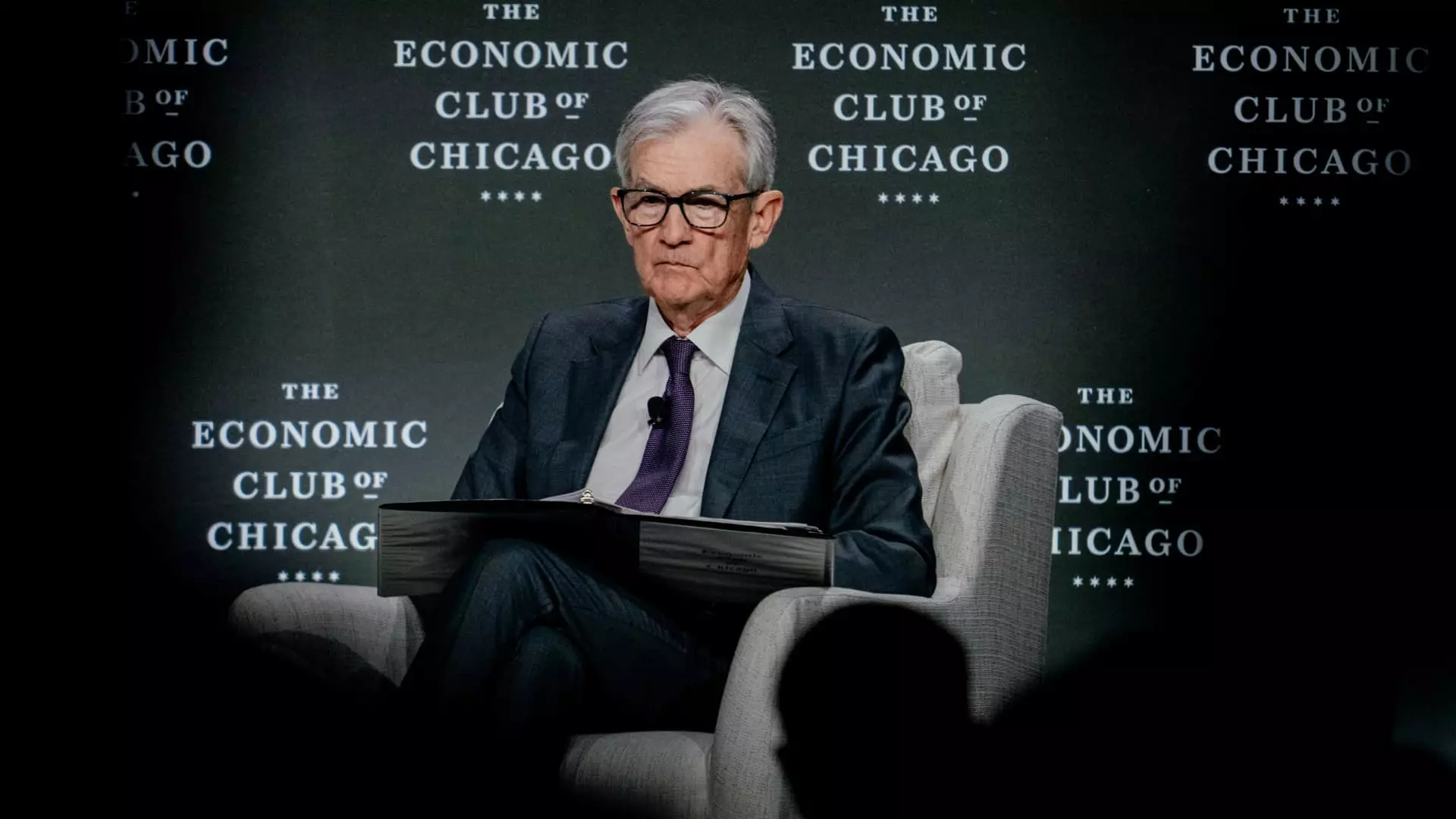In a shocking display of desperation, President Donald Trump has publicly lambasted Federal Reserve Chairman Jerome Powell, branding him a “major loser” in an effort to drive down interest rates. This strategy, seemingly plucked from the pages of a populist playbook, reveals not only Trump’s disdain for expert opinion but also a perilous misunderstanding of economic fundamentals. As someone who publicly touts the stability and strength of the economy, these calls for “preemptive cuts” expose a reckless inability to acknowledge the consequences of political interference in fiscal policy.
The overarching narrative from Trump’s camp suggests that there is “virtually no inflation” and that costs are in decline across the board. However, the reality is far more complex. While Trump wants the narrative to reflect an economy that’s thriving without inflationary pressures, the truth indicates a fragile financial landscape, ripe for a downturn if mishandled. Such oversimplification reflects a disconnection from the sophisticated analysis that the Federal Reserve performs daily to mitigate risks, ensuring that monetary policies align with the ebbs and flows of the global economy.
Questioning the Independence of the Federal Reserve
What’s more alarming than the childish insults hurled at Powell is Trump’s audacious suggestion that he could fire the Chairman before his term is over. This unconstitutional overreach strikes at the heart of what makes the Federal Reserve an essential institution: its independence from the political whims of any single leader. The U.S. economy is nuanced and requires the guidance of a central bank that is free from political pressures, enabling rational decisions unclouded by the whims of populist sentiment.
Attempts to undermine Powell’s authority illuminate a dangerous precedent that could jeopardize institutional integrity and stability. If Trump succeeds in eroding trust in this vital institution, the ramifications could be catastrophic. Financial markets thrive on stability and predictability, and undermining the Fed’s credibility would trigger volatility, leading not just to a stock market sell-off but potentially exacerbating an economic downturn. Leading economists have voiced concerns that questioning the Fed’s independence raises the stakes for monetary policy adjustments and makes necessary actions less likely.
The Trickle-Down Effects of Turmoil
Recent movements in the financial markets resoundingly echo the turmoil sparked by Trump’s reckless rhetoric. Following his tirades, the stock market plummeted, with the Dow Jones Industrial Average losing significant ground. Investments are inherently sensitive to uncertainty, and if the markets perceive that the Fed is under siege, the trader mentality shifts from optimistic growth to defensive retreat, as seen by flight toward safer assets like gold. Such migratory trends are not just short-term reactions; they suggest a deeper apprehension toward the durability of economic growth when leadership destabilizes essential institutions.
Moreover, Powell’s warnings about the impacts of Trump’s trade policies signal a critical juncture where domestic policy and international economic standing collide. With tariffs creating friction in global trade relationships, a self-inflicted wound to the economy might not merely stifle growth, but could also lead to inflation, undermining the very claims of low costs across the board that Trump wishes to assert. Ignoring Powell’s nuanced warnings could make way for exacerbated economic strife, challenging the administration’s claims of economic strength.
Reflections on Leadership and Governance
The troubling intersection of economic mismanagement and personal vendetta sheds light on a broader problem in U.S. governance today: the encroachment of partisan battles into realms that require unbiased expertise. Leadership must extend beyond the superficial politics of blame and instead embrace collaborative efforts with experts who navigate the complexities of the economy. The real ‘winners’ would be those who advocate for a healthy interplay between fiscal policy and the independent judgment of the Federal Reserve, recognizing that economics is not merely a zero-sum game of winners and losers.
The endurance of the American economy depends on informed decision-making that is insulated from the pressures of political theater. As citizens, we must advocate for a governance approach that prioritizes the stability of our financial institutions over partisan posturing; we must resist the lure of populist rhetoric that seeks to simplify what is inherently intricate. In this high-stakes game of economic chess, informed leadership is our greatest ally.


Leave a Reply